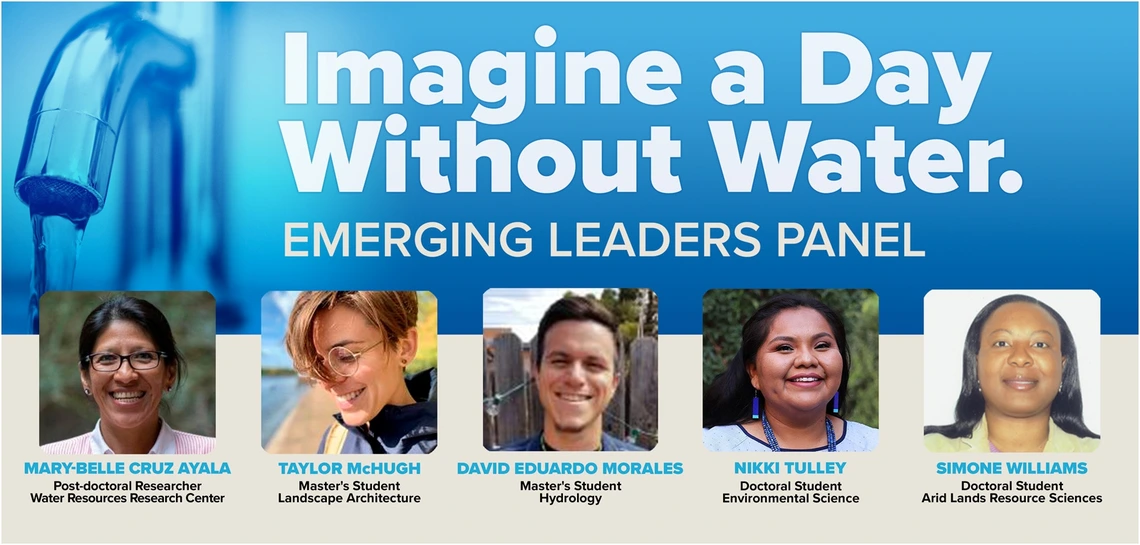Emerging Leaders “Imagine a Day Without Water”

On Thursday, October 21, the WRRC celebrated the 7th annual “Imagine a Day Without Water” with a panel of five emerging water leaders at UArizona: Mary-Belle Cruz Ayala, post-doctoral researcher at the WRRC; Taylor McHugh, MA student, Landscape Architecture; David Eduardo Morales, MS student, Hydrology; Nikki Tulley, PhD candidate, Environmental Sciences; and Simone Williams, PhD student, Arid Lands Resource Sciences. This special webinar featured a 19-minute Netflix video, “EXPLAINED: The World’s Water Crisis.” After the video, the panelists were invited to reflect on its message and share their personal stories in the context of imagining a day without water. McHugh mentioned that “the treatment of [water] reflects how we value it,” an important point built on by other panelists who expanded the concept of water’s value beyond economics.
While describing the challenges of rural Navajo families to illustrate life without water, Tulley brought attention to populations lacking access to running water and additionally noted that when “discussing water access,” we must also consider water quality. Acknowledging this complex interconnectedness of water management and scarcity, Cruz Ayala stated that humanity’s “collective dependence on water” necessitates cooperation across populations. Williams echoed the necessity for open dialogues, stressing the importance of including those most impacted by water resource issues. She further issued a call for people to go beyond talk to action to address water scarcity impacts on those most in need. In his prerecorded remarks, Morales stressed that academic water research must “build beyond disciplinary boundaries,” co-producing knowledge, in order to develop usable science. Through their responses and insight, the panelists demonstrated that the next generation of leaders recognizes the interwoven political, cultural, and environmental complexities that define water issues in the third millennium.

